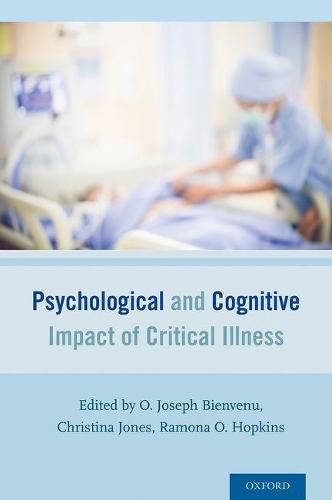Readings Newsletter
Become a Readings Member to make your shopping experience even easier.
Sign in or sign up for free!
You’re not far away from qualifying for FREE standard shipping within Australia
You’ve qualified for FREE standard shipping within Australia
The cart is loading…






Neuropsychiatric problems after critical illness are receiving increasing attention, particularly in the critical care medicine literature, but mental health and primary care clinicians should also be interested in these common problems, given the growing number of critical illness survivors who need care. Patients frequently come out of the intensive care unit (ICU) with horrifying distorted memories and don’t understand what has happened to them. Not only are patients debilitated with ICU-acquired weakness and cognitive impairment, they are traumatized by actual experiences (e.g., shortness of breath and pain) and distorted memories (of being tortured, raped, assaulted, or imprisoned) shaped by delirium. Patients’ family members are also frequently quite distressed, and children surviving critical illnesses appear to have similar experiences to adults. This book provides an overview of the nature and epidemiology of cognitive and other psychiatric problems in this growing population, and it addresses the small but growing literature on prevention and early intervention efforts. Addressing these problems successfully will require collaborative interventions, both in-ICU and post-ICU.
$9.00 standard shipping within Australia
FREE standard shipping within Australia for orders over $100.00
Express & International shipping calculated at checkout
Neuropsychiatric problems after critical illness are receiving increasing attention, particularly in the critical care medicine literature, but mental health and primary care clinicians should also be interested in these common problems, given the growing number of critical illness survivors who need care. Patients frequently come out of the intensive care unit (ICU) with horrifying distorted memories and don’t understand what has happened to them. Not only are patients debilitated with ICU-acquired weakness and cognitive impairment, they are traumatized by actual experiences (e.g., shortness of breath and pain) and distorted memories (of being tortured, raped, assaulted, or imprisoned) shaped by delirium. Patients’ family members are also frequently quite distressed, and children surviving critical illnesses appear to have similar experiences to adults. This book provides an overview of the nature and epidemiology of cognitive and other psychiatric problems in this growing population, and it addresses the small but growing literature on prevention and early intervention efforts. Addressing these problems successfully will require collaborative interventions, both in-ICU and post-ICU.